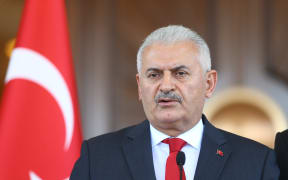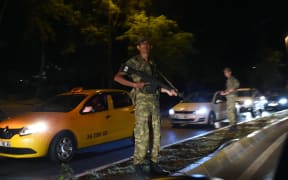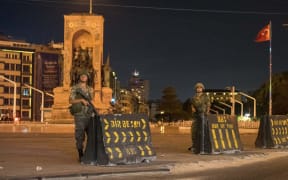Some 2839 soldiers, including high-ranking officers, have been arrested over this weekend's attempted coup in Turkey
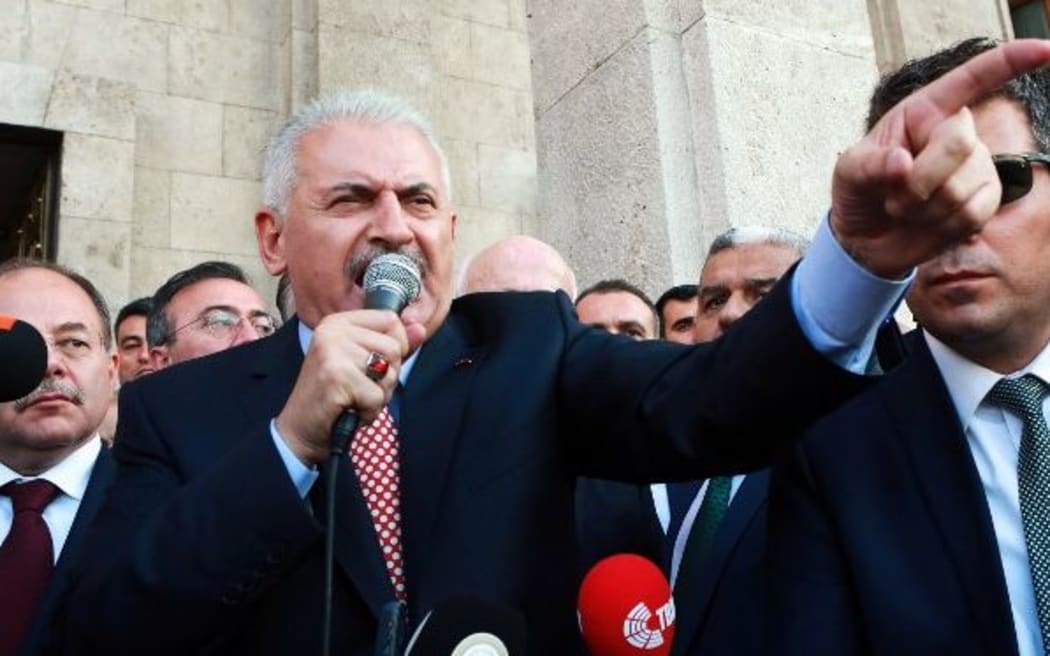
Turkish Prime Minister Binali Yildirim (C) speaks to the public after a meeting with the Turkish Speaker of Parliament in Ankara. Photo: AFP
Prime Minister Binali Yildirim described the coup attempt as a "black stain on Turkish democracy", with 265 people killed and 1440 wounded.
Turkish officials said 161 of those killed were civilians and police, and 104 coup supporters.
Explosions and gunfire were heard in Ankara, Istanbul and elsewhere overnight and thousands of Turks heeded President Erdogan's call to rise up against the coup-plotters.
It is unclear who was behind the coup.
President Recep Tayyip Erdogan has blamed a "parallel structure" - a reference to Fethullah Gulen, a powerful but reclusive US-based Muslim cleric whom he accuses of provoking unrest.
Mr Gulen has rejected any suggestion of links to what happened, saying he condemned "in the strongest terms, the attempted military coup in Turkey". The Turkish government wants his extradition.
Listen back to RNZ's special broadcast on the coup attempt
Some 2745 Turkish judges have also been dismissed in the wake of the coup, state media say.
In other developments, the US consulate in southern Adana province said local authorities were preventing movement in or out of Incirlik air base and had cut power there. No reason has been given.
The US uses Incirlik to fly on missions against the so-called Islamic State (IS) in Syria and Iraq.
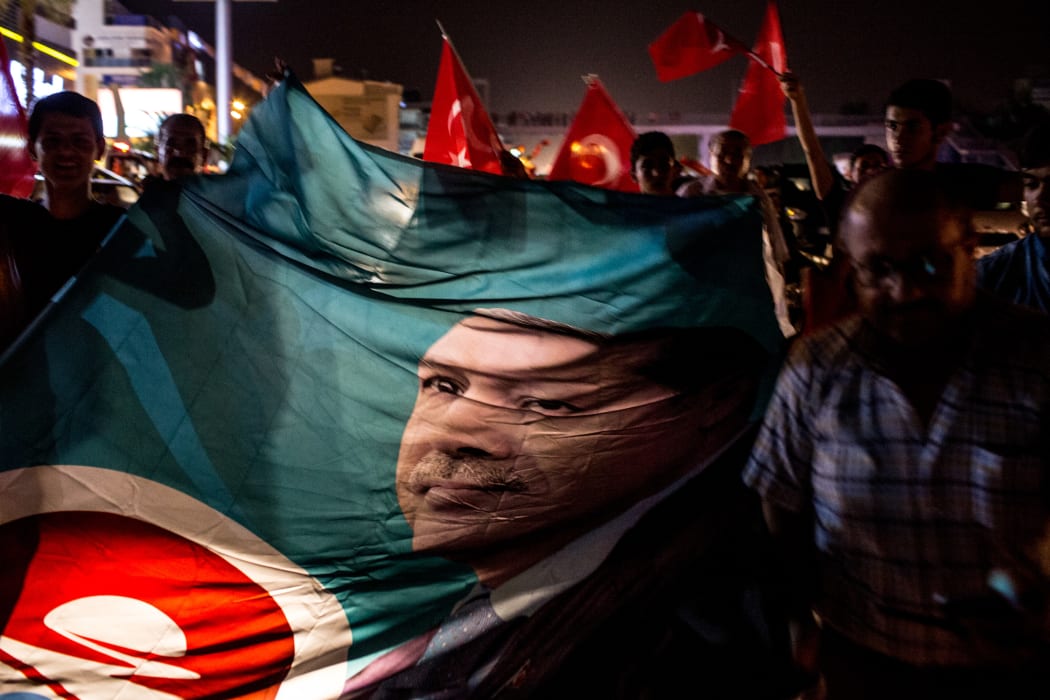
People take to the street in support of President Recep Tayyip Erdogan July 16, 2016 in Antalya, Turkey. Photo: AFP
How it unfolded
Events began on Friday evening as tanks took up positions on two of the bridges over the Bosphorus Strait in Istanbul, blocking traffic. Troops were seen on the streets and low-flying military jets were filmed over Ankara.
Shortly after, an army faction issued a statement that a "peace council" was running the country, and it had launched the coup "to ensure and restore constitutional order, democracy, human rights and freedoms".
President Erdogan, then in the south-west resort of Marmaris, made a televised address via his mobile phone, urging people to take to the streets to oppose the uprising.
After flying to Istanbul, Mr Erdogan said: "What is being perpetrated is a treason and a rebellion. They will pay a heavy price."
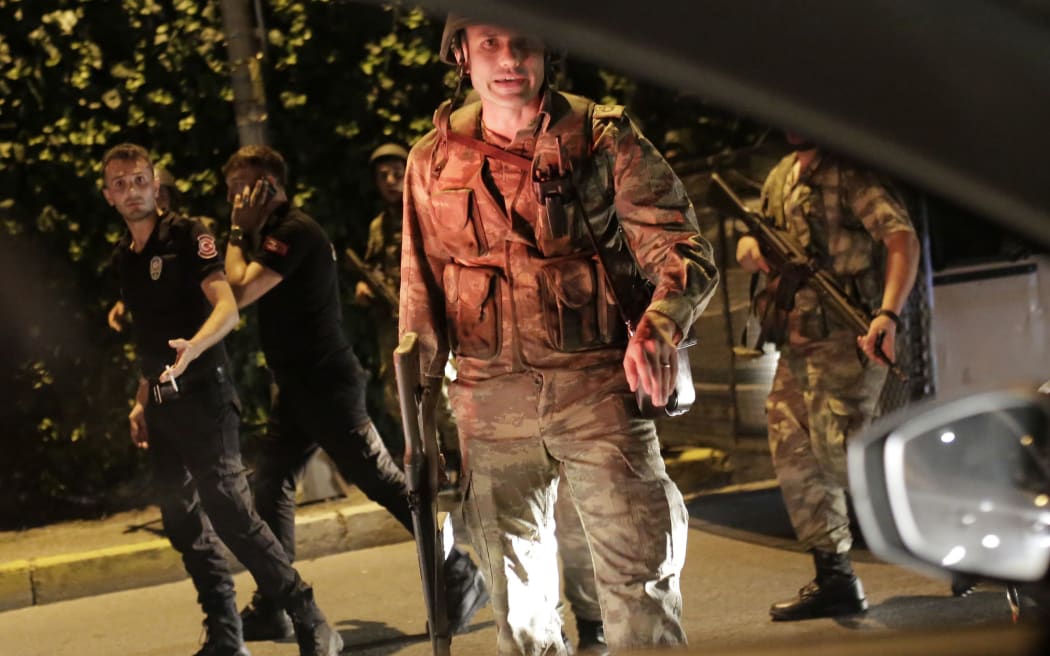
Turkish security officers detain Turkish police officers (in black) in Istanbul, during a security shutdown of the Bosphorus Bridge. Photo: AFP
Fierce clashes
During the violence, the Turkish parliament and presidential buildings in Ankara were attacked. At least one bomb hit the parliament complex. MPs were believed to be hiding in shelters.
Gunfire was also heard outside Istanbul police headquarters and tanks were said to be stationed outside Istanbul airport.
Broadcaster CNN Turk was temporarily taken off air after soldiers entered the building and tried to take it over. CNN Turk later tweeted a photo of soldiers being arrested by police.
PHOTO The moment a group of pro-coup soldiers raided @cnnturk and were later arrested. #TurkeyCoupAttempt pic.twitter.com/Bc4PrrgSN2
— CNN Türk ENG (@CNNTURK_ENG) July 16, 2016
There were reports of fierce clashes in Taksim Square in central Istanbul, and gunfire and explosions were heard near the square.
One of the helicopters being flown by rebels was reportedly shot down by government troops in Ankara.
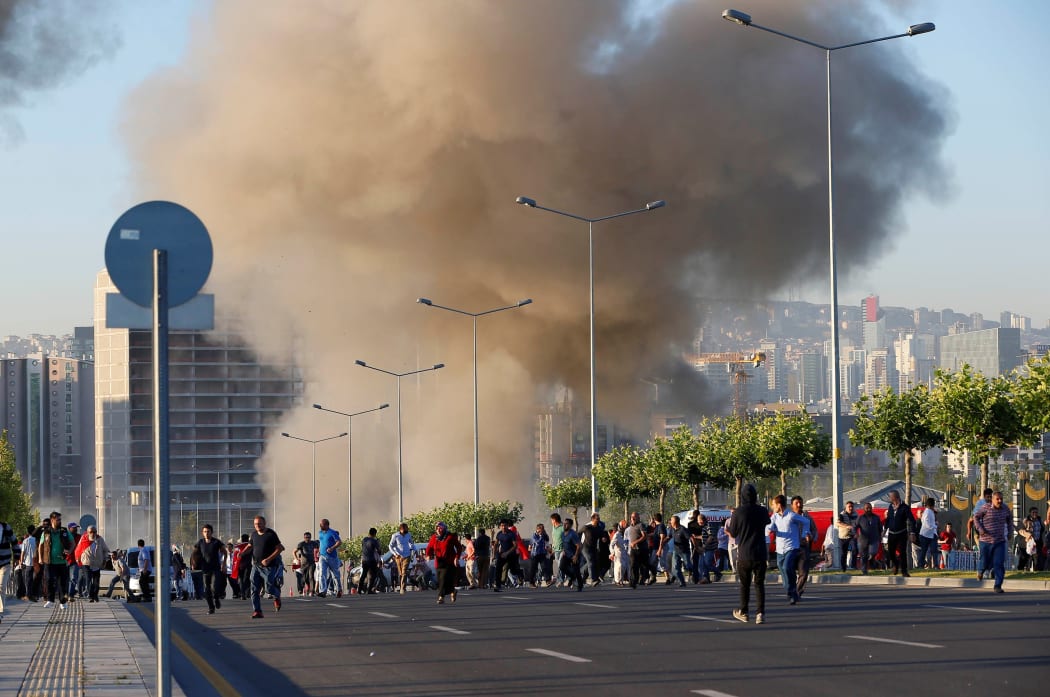
After airborne shelling near the presidential complex during "Parallel State/Gulenist Terrorist Organization"s coup attempt in Ankara, Turkey on July 16, 2016. Photo: AFP / ANADOLU AGENCY
What is happening now?
Prime Minister Yildirim said the situation was now "completely under control" and the government's commanders were now back in charge.
Earlier, acting military chief of staff Umit Dundar said officers from the air force, the military police and armoured units had mainly been involved in the coup attempt.
Although the chief of staff had been rescued, several military commanders were still being held hostage, he said.
Eight military personnel involved in the coup attempt fled to Greece by helicopter, seeking political asylum. Greece said it was considering Turkey's request for their extradition.
Earlier, some 200 unarmed soldiers left Turkey's military headquarters in Ankara and surrendered to police, according to the state-run Anadolu news agency.
Dramatic images showed dozens of soldiers walking away from their tanks with their hands up on one of Istanbul's Bosphorus bridges.
World reaction
- In Washington, President Barack Obama urged all parties in Turkey to support the "democratically elected government".
- Nato, of which Turkey is a member, called for "full respect" for Turkey's democratic institutions.
- European Council President Donald Tusk said the country was "a key partner for the European Union" and called for a "swift return to Turkey's constitutional order".
- Russia said it was deeply concerned, saying "the flare-up of the domestic political situation against the backdrop of the existing terrorist threats in this country and the armed conflict in the region brings a heightened risk to international and regional stability".
- Iran said events in Turkey proved "that a coup d'etat has no place and is doomed to fail in our region".
- BBC / Reuters
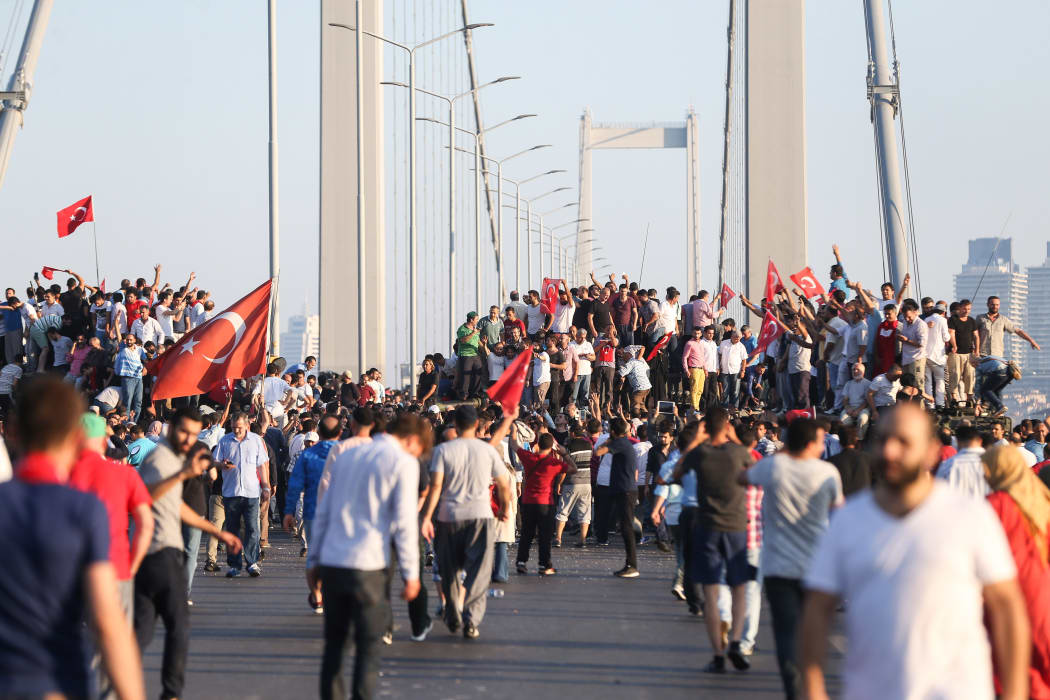
People climb on tanks after soldiers occupying Bosphorus Bridge surrendered in Istanbul, Turkey on July 16, 2016 Photo: AFP / ANADOLU AGENCY
